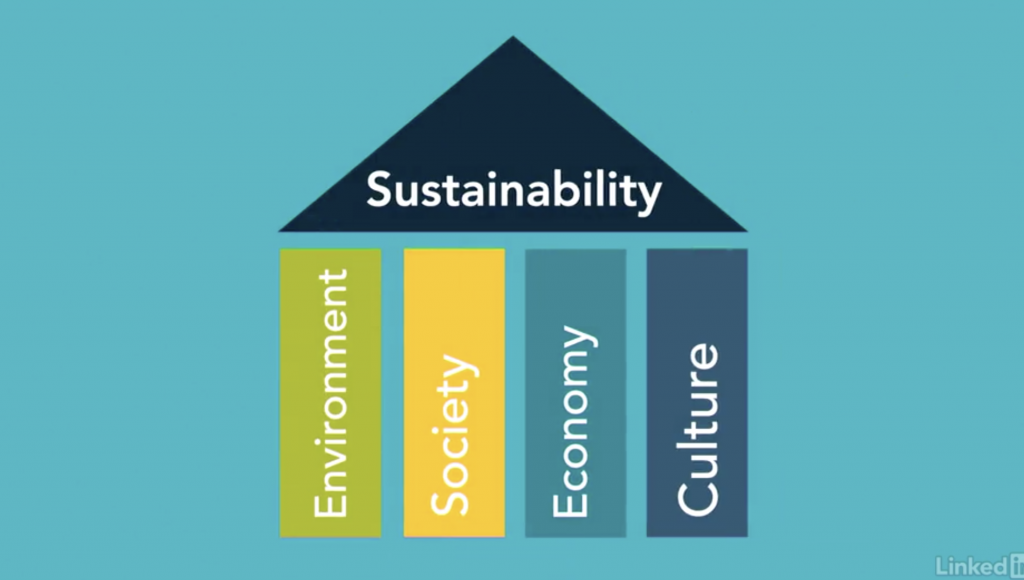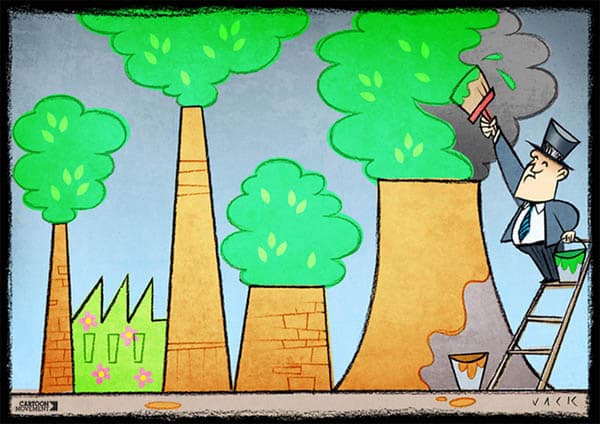Many things are filling the headlines of late – from Covid to Brexit and Euro 2020 to Summer 2021. Brewdog can be added to the list.
When former employees called out the founders for a ‘toxic workplace’, ears pricked up. The fact they did it very publicly made ears prick up even more. Added to this, it was well structured, presented and communicated. Round 1 to the former employees. All eyes on Brewdog. Was this going to be as “punk” as their brand or would their trigger-happy solicitors get involved? Unfortunately for Brewdog – they’re not quite getting the publicity they wanted, or are used to.
Previously, I’ve been vocal in my support for Brewdog. Great brand, I love the beer and love the attitude. Also I thought their approach to sustainability was brilliant. Planting trees, creating woodland, carbon-negative drinks, engaging the customer – all very public and moving at pace. But what this recent turn of events has taught us, is that things aren’t always what they seem. (Or are they..?!)
Here’s a few key learnings;
Being sustainable is about much more than your environmental credentials
So BrewDog were putting big ticks in the ‘Environment’ box for me and many others – but sustainability is much more that planting a tree or using less water. Also, you could argue their growth and success is contributing to the ‘Economy’ – but has this been at cost to other elements of sustainability? Let’s remind ourselves of what these are: Environment, Social, Economic and Culture (or Human). (The four pillars of sustainability).
So what’s happened with Brewdog? They’ve been called out for a toxic culture which has led to people leaving their jobs in uncertain times, being afraid to speak out (during and post-employment), being very unhappy and in some cases, suffering from mental health problems, such as anxiety and depression. Although they’ve been an innovator and have been the ‘craft beer’ torch bearer with a great growth story, this puts a question mark over how they look after their key asset – their employees.

‘Quality of Life’ and ‘Quality of Place’ are terms which are used within the ‘Culture’ element of sustainability, and I’m sure for many in the organisation these factors are positive. But the fact many employees have publicly called issue with this brand, suggests all is not well in this respect.
Lesson to learn: The environment is just one element of what you need to consider to become more sustainable. And in some cases, the pursuit of one element (economic) can have a detrimental effect on others (culture).
Beware Greenwash
I’d like to dig a touch deeper into the sustainability side still, and there were some concerning claims made about the organisation. Although I’ve not heard someone call out ‘Greenwash’ to Brewdog – there’s an important lesson to be learned here.

Examples of ‘vanity projects’, include; chartering flights across the Atlantic (which were topped up with staff to ‘justify’ their purpose), using glacier water for a beer and reducing promised donations to charity (as it was ‘too much’). Ok, so I cannot personally prove these are true or not (have they specifically been denied/explained?) – the point is, mud has been slung – and mud like this has a tendency to stick before the argument has been fully realised.
If proven to be true, how can an organisation claim such impressive environmental credentials whilst chartering private vanity flights?! Is this arrogance in their own success or did they feel their environmental work ‘allowed’ them some concessions in the same way I might have run 10k today, so feel like I’ve earned a slice of cake later on? (Or, did they have a genuine purpose to charter a flight? Were no commercial flights available? I’m speculating of course..) The problem is – this leaves the public with questions, and doubt.
As a side note, let’s go back to some more sustainability basics here: Reduce, Reuse, Recycle.
Lesson to learn: Say you’re sustainable based on ethos and based on action. You will get pulled up on this.
Power to the People
Love or hate social media – it’s given a voice to many. How they choose to use it is another thing, but in this case it’s allowed a group of people to bring to light something that isn’t right. (Watch this space for copy-cats. Good, bad and indifferent).

This is great. Brewdog HAVE to react (see next section). The ball is in their court to either make good or make a mess. There’s several things which I really like about this, and several points I don’t;
The hidden ‘secrets’ of an organisation’s culture are laid bare.
Remember those interviews where you were told how good the company was? You know, the one where you were introduced to a previously briefed ‘model’ employee who would nod and smile and look happy? Then came along Glassdoor which lifted the lid partway. And then everyone realised social media was free and could spout what they wished as the world was (seemingly) more transparent.
This enabled people to call out the bullshit and the ‘values’ which many organisations spend money on creating – but are often not delivered or even recognised internally. (Note; many organisations have great values which are truly and genuinely embodied in what they do!).
But I appreciate their is a downside to this. Bullshit and lies exist on both sides of the fence – so this point comes with a note of caution. (Every one has a story to tell. Not every story is true. Don’t believe everything on social media, on TV, in the paper! Look at the evidence. Look for facts!!!)
Use your voice. Intelligently.
This isn’t a call to arms by any means – but a group of employees should have a voice. Trade Unions exist for elements of this but you don’t have to be part of that to have your voice heard. The problem in some organisations is the existence of FEAR and that’s why so many people DON’T speak up. How on earth has this happened? Personally speaking, i’ve been told to keep my opinions to myself and to put up or leave – my choice.!
More confident people will walk, safe in the knowledge that they will find gainful employment elsewhere. Bills will be paid, food will be on the table. But not everybody is like that for many reasons. So – they feel trapped.
Ruling with fear or chaos (caveat: which BrewDog have been ‘accused‘ of) only works for so long. Who is it who really wins in this situation?
Lesson to learn: You may tell your employees to “put up or leave” (that’s been said to me), or ignore them completely – but their voice can now be heard more than ever. And people are listening.
Carefully consider your PR
This is where Brewdog’s day keeps getting worse. Prior to this, their solicitors were already accused of being heavy handed which flew in the face of what their brand was about. (They would argue brand protection). Anyway, that’s another story.
What’s caught the eye with the recent events is that Co-founder James Watt penned an open response (which isn’t so unusual for Brewdog) – but it wasn’t met in the way he had hoped. Credit where credit is due, James Watt acknowledges clear failings in the business – but he didn’t respond to specific claims, something a follow-up letter from former employees has addressed.
This could have been far worse – Brewdog could have unleashed the solicitors and used their millions to quash the challenge to what they represent, instead they elected to respond by saying “We have to see this feedback as an opportunity to get better. We have to learn, we have to act. We have to take it on the chin.” It’s also been suggested that the company were considering putting together a list of happy employees to counter the claims from the list of unhappy ones. Thankfully this hasn’t happened to my knowledge.
So was this a rash response? Perhaps not (and I’ve seen far too many in my past) but it still doesn’t feel like James and co properly considered their response. (Have you ever had someone apologise to you but they don’t look you in the eye or say what they are apologising for?) Until demonstrable action is evidenced and believed the jury may be out in terms of Brewdog as an employer – but they still have to address the past. This will enable them to move ahead with conviction (and trust) and for aggrieved, former employees to feel they’ve been heard and so others wont have to suffer the experience they did.
Lesson to learn: A half-baked or unconsidered apology often raises more questions, and more publicity.
Final point – do you consider YOUR values?
To put some perspective on what this may or may not mean – take an inward look. Yes, it’s easy for everyone to take a stick to Brewdog (and others) but ultimately – how does it make you feel? I know how I personally feel – and I’ve tried to be careful how I present this blog. I’ve purposely pitched this as “lessons we can learn” from the Brewdog situation – rather than siding specifically with one side. After all, aren’t you considered innocent until proven guilty? I’m making a commentary on the situation. The outcome is yet to be decided I think.
Whether these accusations or true or not (I feel I must state that), it’s undeniable that people will now have a perception of Brewdog. This may be good, bad or indifferent. Your call, not mine. But this will be based on several things – of which some you can control, some you can’t;
- Do you believe what is written about Brewdog, or do you think there’s more to it?
- Do you trust Brewdog words in response?
And here are the biggies which will probably align with your own personal values;
- Do you even care about this?
- Will you change your beer-buying habits?
_____
Note: Every story has two sides, and although this blog used Brewdog as a catalyst to look at issues, they have been a timely point of reference. I’m not saying they’ve done wrong. I’m not saying the former employees are right. I’ve never worked with or at Brewdog. I love Elvis Juice. There. I’ve said it. I do love other beers too.

